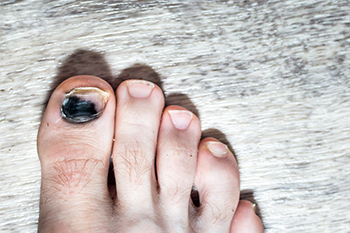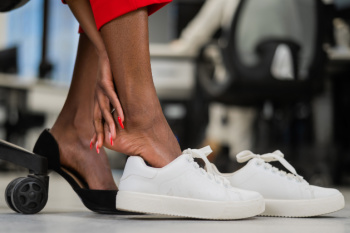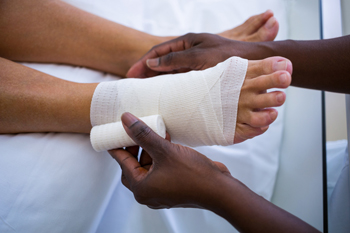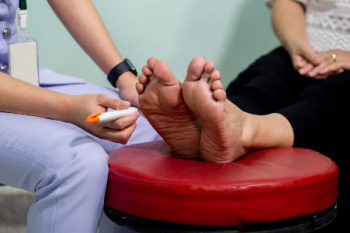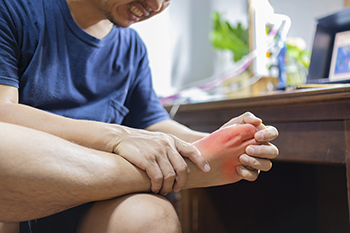
Gout is a type of inflammatory arthritis that often targets the big toe and causes immediate and excruciating pain. Symptoms of gout include sudden swelling, pain, and redness, called flare-ups, and often occur during the night. It is caused by high levels of uric acid that form crystals in the joint. A podiatrist can conduct tests to measure uric acid levels and identify crystals in joint fluid. Treatment aims to alleviate acute flares, prevent further occurrences, and manage the condition long-term to avoid uric acid deposits in tissues. Anti-inflammatory drugs and corticosteroids help manage pain and inflammation during flares, while preventive daily treatments may be necessary for severe cases. Lowering uric acid levels is essential for long-term management, achieved through medication, diet, and lifestyle changes. A podiatrist can offer specialized foot-related care and comprehensive assessments, custom treatment plans, and progress monitoring for effective gout management. If you are experiencing gout symptoms in the feet or ankles, it is suggested that you seek assistance from a podiatrist who can provide tailored care to alleviate discomfort and optimize management strategies.
Gout is a foot condition that requires certain treatment and care. If you are seeking treatment, contact one of our doctors from Advanced Foot & Ankle Medical Center. Our doctors will treat your foot and ankle needs.
What Is Gout?
Gout is a type of arthritis caused by a buildup of uric acid in the bloodstream. It often develops in the foot, especially the big toe area, although it can manifest in other parts of the body as well. Gout can make walking and standing very painful and is especially common in diabetics and the obese.
People typically get gout because of a poor diet. Genetic predisposition is also a factor. The children of parents who have had gout frequently have a chance of developing it themselves.
Gout can easily be identified by redness and inflammation of the big toe and the surrounding areas of the foot. Other symptoms include extreme fatigue, joint pain, and running high fevers. Sometimes corticosteroid drugs can be prescribed to treat gout, but the best way to combat this disease is to get more exercise and eat a better diet.
If you have any questions please feel free to contact our offices located in Agoura Hills, Simi Valley, Thousand Oaks Marin St., and Thousand Oaks Haaland Drive, CA . We offer the newest diagnostic and treatment technologies for all your foot and ankle needs.
